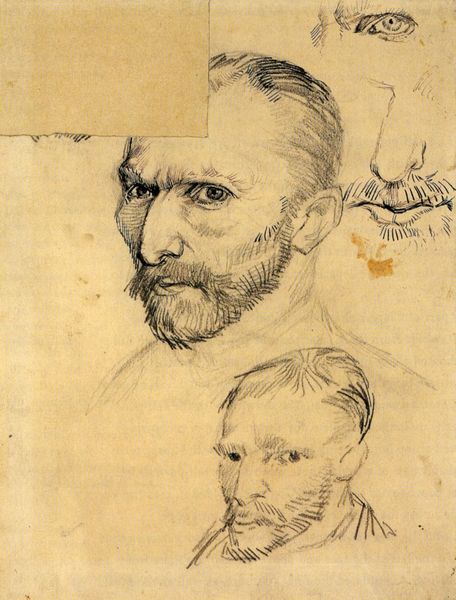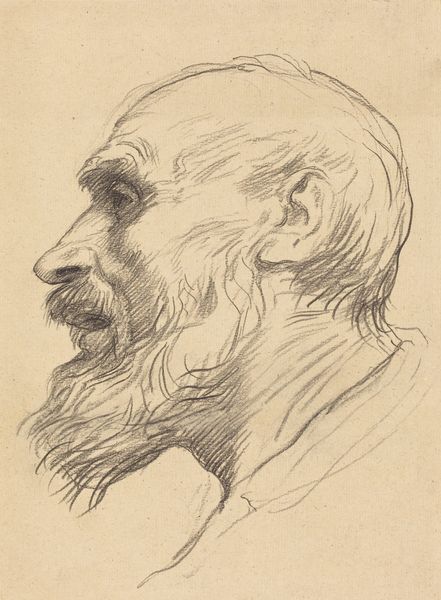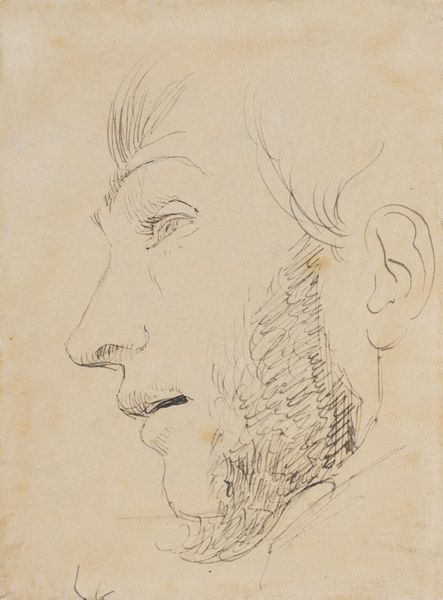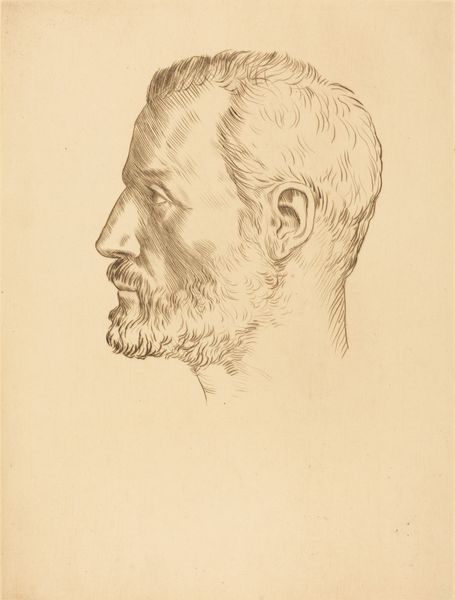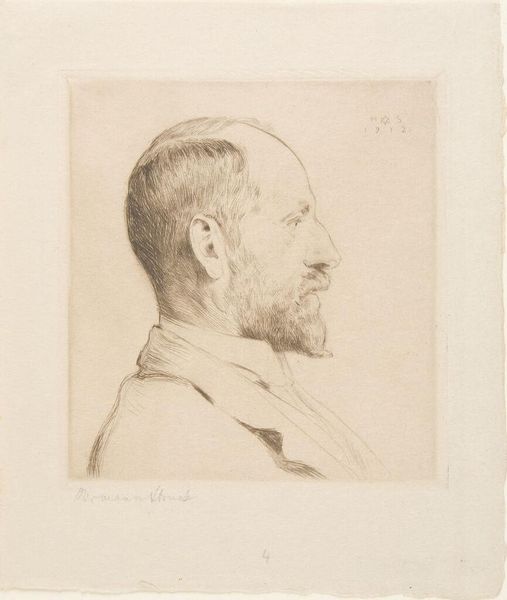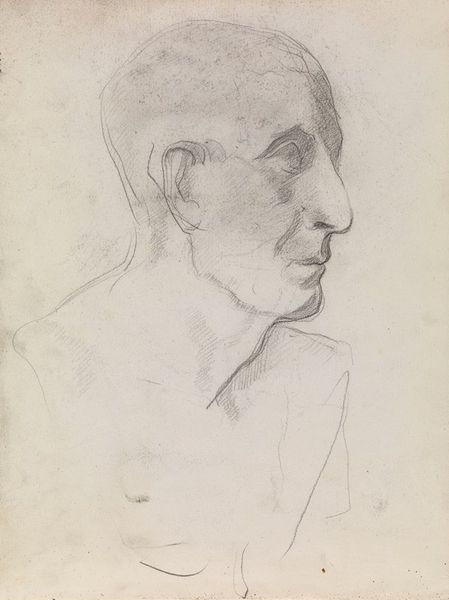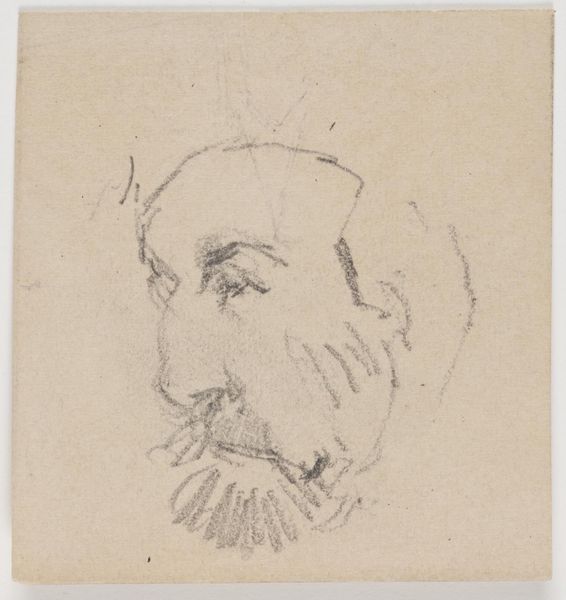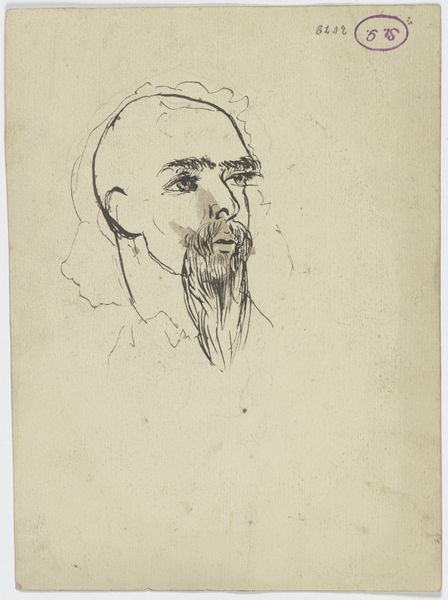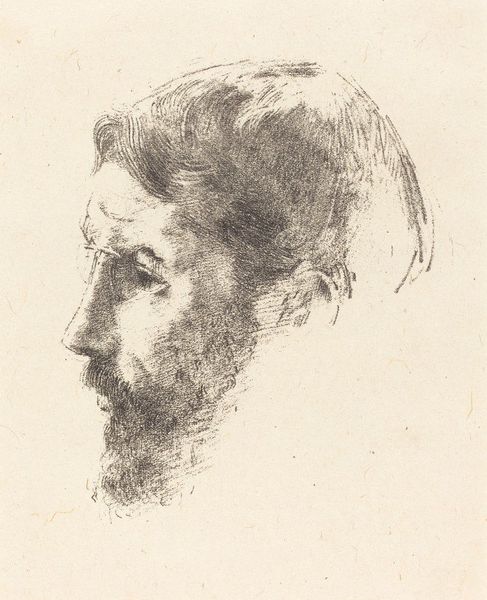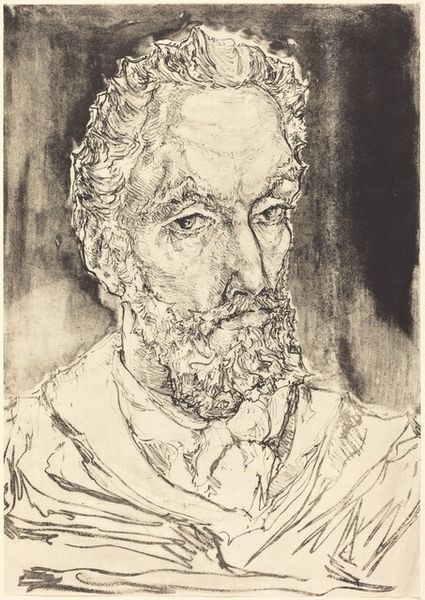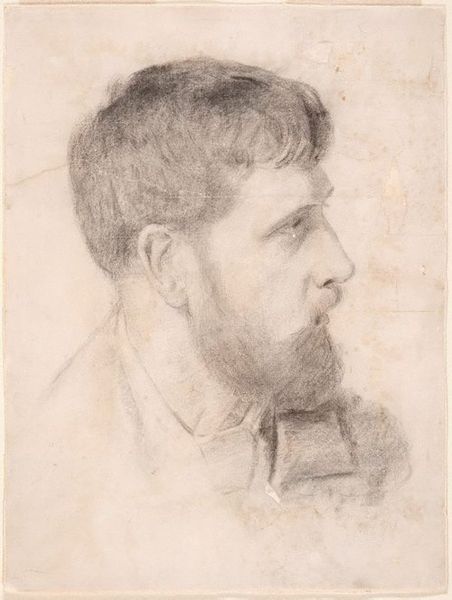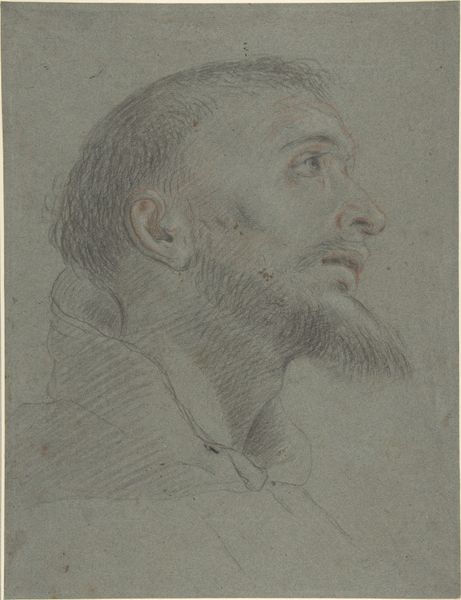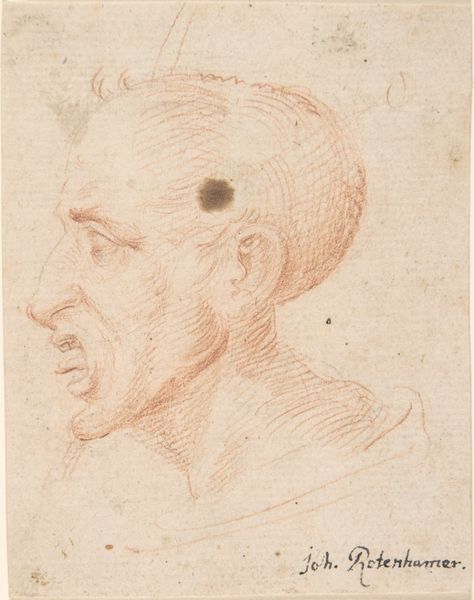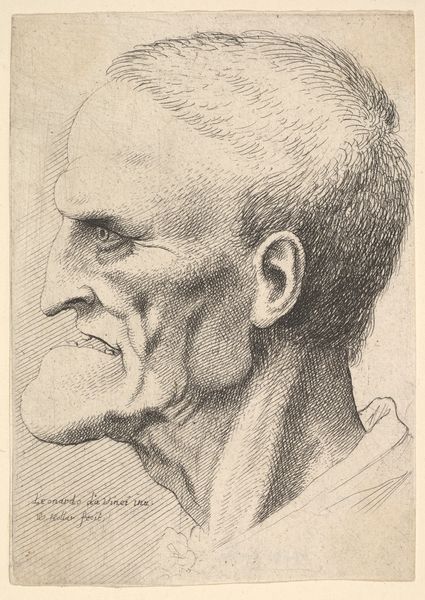
drawing, pencil
#
portrait
#
pencil drawn
#
drawing
#
self-portrait
#
impressionism
#
famous-people
#
pencil drawing
#
pencil
#
portrait drawing
#
post-impressionism
Copyright: Public domain
Editor: Here we have Van Gogh's "Self-Portrait" from 1886, a pencil drawing on paper. It's surprisingly intimate, like catching a glimpse of him lost in thought. What strikes you most about it? Curator: The rawness. It's a stark contrast to the romanticized narratives we often build around artists. This isn't about idealized genius; it's about a human grappling with their own image. We see a searching gaze, a vulnerability, which, in its own way, challenges the conventions of portraiture at the time. Do you notice the directness of his stare, how confrontational it feels? Editor: It does feel very direct, almost challenging. I guess I always expect to see his paintings, the swirling colors, and the thick paint. Curator: Exactly. That expectation speaks volumes. Consider the art world he navigated: an environment dominated by bourgeois values and academic traditions. This drawing defies those expectations. The raw, almost unfinished quality feels like a rejection of the polished, presentable self that was demanded. How might this be interpreted as a silent protest against those societal pressures? Editor: I hadn't thought of it that way, as a form of protest. Curator: It's a subtle one, but the act of representing himself outside those established norms, in this unfiltered way, carries its own weight. Think about how societal perceptions of mental health might have further fueled this divergence. It's a fascinating dialogue between artist, subject, and the restrictive societal context. Editor: I see what you mean. Seeing it as a quiet act of rebellion really reframes the piece. Curator: Precisely! It encourages us to reconsider not only Van Gogh's internal struggles, but also his role within a broader cultural and historical landscape. Art, like this portrait, often subtly speaks to the mood and tensions of a period, providing commentary on issues relevant to diverse communities.
Comments
No comments
Be the first to comment and join the conversation on the ultimate creative platform.
